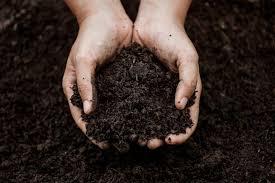Updated: April 28, 2022
Manure as a Natural Resource: Alternative Management Opportunities (EB-420)
A new publication (EB-420) is available from University of Maryland Extension. Manure as a Natural Resource: Alternative Management Opportunities is written as an overview of some existing technologies. Many new ideas are proposed for the region, and understanding the science behind them is imperative to deciding which option you may want to follow.
Manure, as a source of organic matter and plant nutrients, is an excellent conditioner for soils. It is a component of agronomic production, cycling nutrients between soils, plants and livestock. However, in areas where limited land is available for application, excess soil nutrients can lead to water quality issues. Local restrictions on manure application necessitate finding alternative uses. The simplest method is to transport manure to nutrient-deficient land. Manure can be composted into a higher-quality fertilizer or have the nutrients extracted and sold separately. Manure also has an energy value, and where feasible, anaerobic digestion, pyrolysis, or gasification could be options.

Updated: January 20, 2021
Manure to Energy Byproducts are Useful Nutrient Sources
Manure is a great fertilizer for nutrient-poor soils. However, when transport costs limit utilization, alternative uses such as energy production become viable. In most cases, manure-to-energy practices produce nutrient-rich byproducts that can be used as a soil amendment. While nitrogen (N) may be lost, other nutrients like phosphorus (P) and potassium (K) are often more concentrated in these byproducts. Manure-to-energy practices include anaerobic digestion and thermal methods (pyrolysis, gasification). Composting and nutrient extraction also can alter manure and help concentrate nutrients for easier and less costly transport. The nutrient value of these byproducts is discussed.
